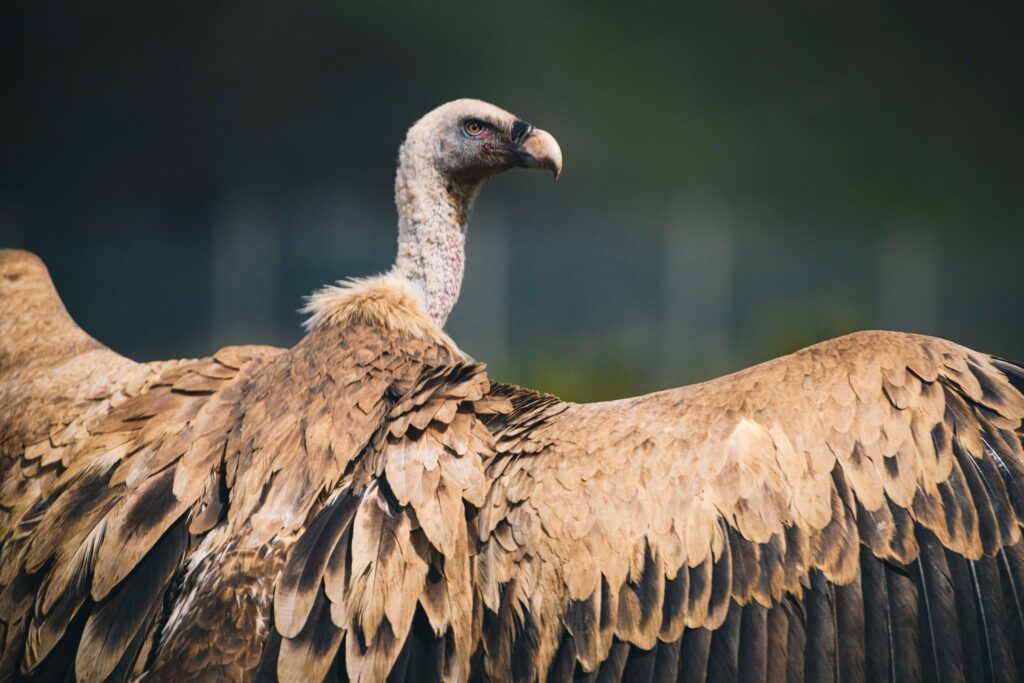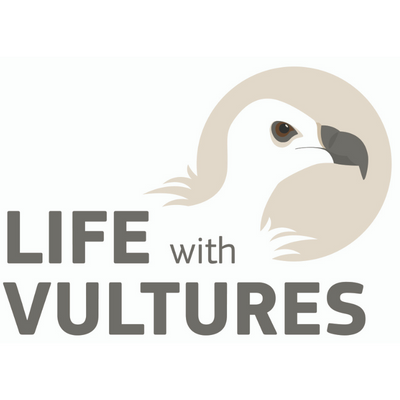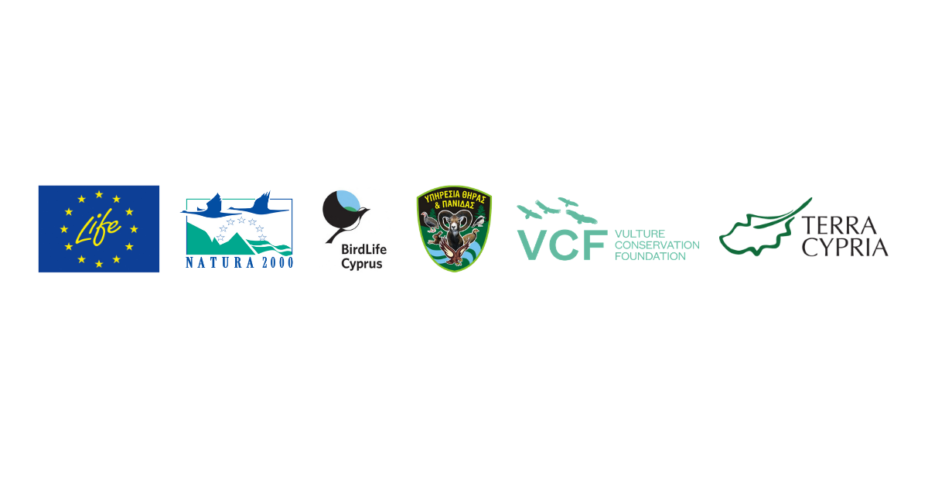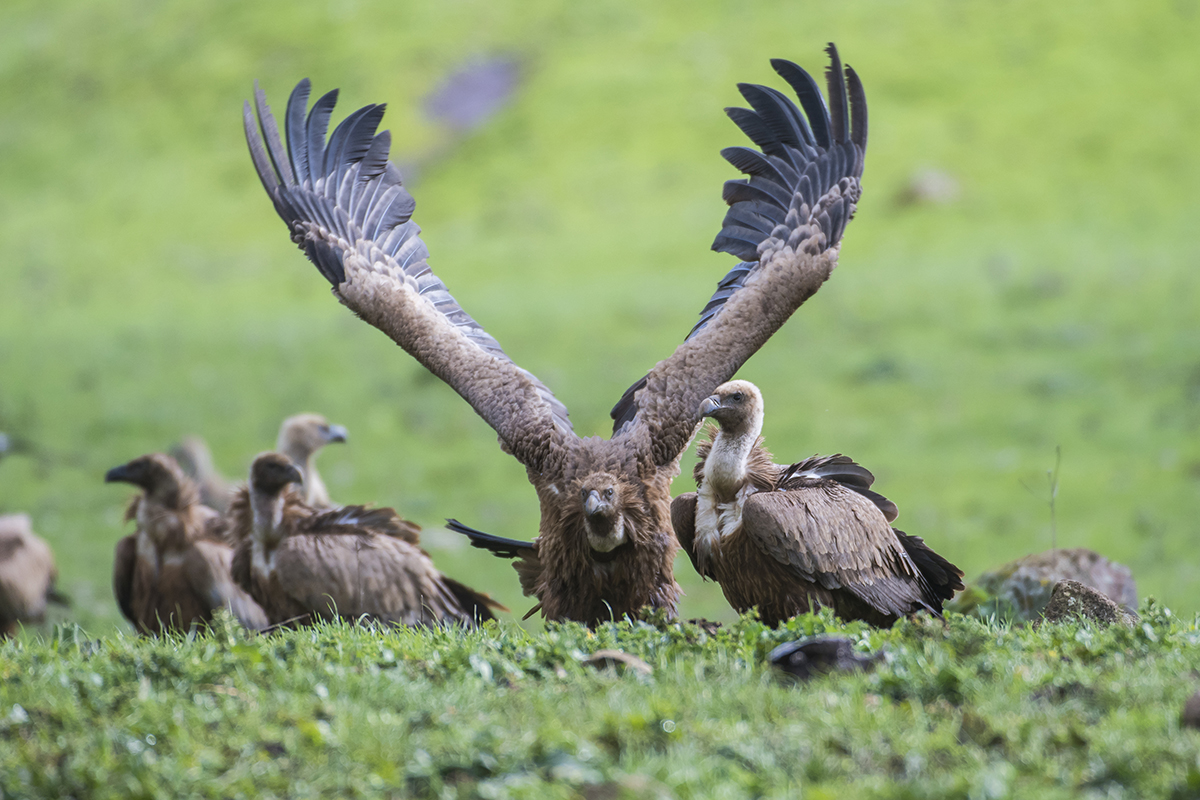Unfortunate news from Cyprus, as the only Griffon Vulture (Gyps fulvus) pair attempting to breed this season failed. Indiscriminate human disturbance around the nesting area might have contributed to this result. After last year’s poisoning events that took the life of 3 Griffon Vultures, including two chicks still in the nest, this year’s breeding failure emphasises the vulnerability of the species. Partners of the ongoing LIFE with Vultures project stress the importance of conservation actions to ensure the long-term survival of the species in Cyprus.

Griffon Vulture breeding failure in Cyprus
Since the 50s, the Griffon Vulture population in Cyprus has been severely impacted due to mass poisoning incidents and the lack of food availability, as extensive livestock production plummeted on the island. Collaborative efforts to save the species began in 1987 and are ongoing until today, thanks to the Life with Vultures project.
In May this year, the monitoring team confirmed that the only Cypriot Griffon Vulture pair recorded this year attempting to breed laid a clutch, in the area of Episkopi Limassol. A glimmer of hope for all project partners involved in the ongoing conservation efforts! Sadly, however, the clutch never hatched, and the pair abandoned the nest. The reasons for this failure are unknown, but unattended human activities in the nesting area might have influenced. According to Birdlife Cyprus, the unlicensed use of drones, overnight camping on the beach and leisure activities close to the cliffs, such as paragliding or boating, can seriously affect the breeding activity and lead to nest abandonment.
Saving the Griffon Vulture from extinction in Cyprus
The isolation of the Cypriot Griffon Vulture population, unreachable by conspecifics moving in from other regions, increases the species’ vulnerability. A Population Viability Analysis led by the Vulture Conservation Foundation within the project confirmed the urgency of implementing conservation measures. With only ~20 individuals and a daunting possibility of the species’ collapse in just 15 years, project partners have been working hard on two fronts: strengthening the population by releasing translocated individuals and mitigating threats, especially illegal wildlife poisoning.

Releasing Griffon Vultures to strengthen the fragile Cypriot population
In November 2021, 15 Griffon Vultures were transferred from Spain to boost the local population. Transferring birds from other geographic areas is an essential tool scientists use to strengthen extremely small and vulnerable populations. After ten months in a spacious acclimatisation aviary in the Limassol district, the birds were fitted with GPS transmitters and released in the wild. However, just nine days after the release, two birds drowned. This year, one fatally collided with a power line, but thanks to the GPS transmitter, the life of a trapped bird was spared. Another batch of 14 Griffon Vultures from Spain arrived in March this year and will be released after the acclimatisation period.


Poisoning events are a severe threat to the fragile population.
During the last breeding season, three Griffon Vultures died of poisoning, including one adult and two chicks that were still in the nest. The loss individuals within a population in such a vulnerable condition is a massive blow to the species’ long-term survival. A training seminar based on the Wildlife Crime Academy was organised to increase the response to poisoning incidents. Coordinated by Birdlife Cyprus with the support of Junta de Andalucia and project partners, the seminar provided theoretical and practical knowledge to enable participants to implement the necessary investigation procedures to solve wildlife crime incidents.
A proper response to poisoning incidents increases the chances of wildlife crime convictions, as was seen in Cyprus earlier this year. For the first time, a man was issued a €21.000 fine for wildlife crime after causing the death of a Bonelli’s Eagle and a Goshawk by poisoning with Carbofuran, a highly toxic substance banned in the EU since 2008. Placing poison baits in the countryside is a wildlife crime that has driven iconic bird species, such as the Griffon Vulture, to the brink of extinction. Since 2005, 31 vultures have been poisoned. Apart from building capacity, the project has anti-poison dog units in place to support a faster response in identifying and removing poisoned baits and deter those who illegally use poison baits in the countryside.


Despite the setback of this breeding season, project partners remain committed to the project goals and actions to prevent the species extinction and ensure its long-term survival.
Source: BirdLife Cyprus https://www.facebook.com/BirdLifeCyprus/posts/pfbid02nxnswbkePZM9cihq2ZEEndZ9C4uVtRUWUAwsRccj3TknVNdUUYkgBNZhNgvuMbc4l
LIFE with the Vultures

LIFE with Vultures is a targeted conservation project to protect the Griffon Vulture in Cyprus. In this four-year endeavour (2019-2023), BirdLife Cyprus, the Game and Fauna Service, Terra Cypria – The Cyprus Conservation Foundation and the Vulture Conservation Foundation have joined forces to tackle the main threats facing the Griffon Vulture and prevent Cyprus’ most threatened bird of prey from going extinct. The project has a 1,375,861 Euro budget and is co-funded (60%) by the EU’s LIFE Programme.




